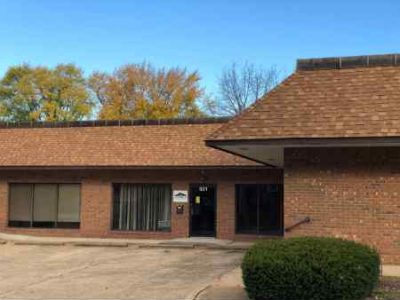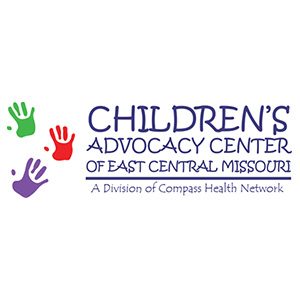Specialized Care For Children With Persistent Behavioral Health Conditions
Specialized Care For Children With Persistent Behavioral Health Conditions
PARTNERSHIP WITH FAMILIES (PWF)
PWF is a strength-based, family-driven program that works in collaboration with families, schools, the juvenile justice system, the Children’s Division, and other child serving agencies to provide a comprehensive system of care for the child and their family in an effort to keep children and youth safe, at home, in school, and becoming productive members of the community.
WRAPAROUND
With the assistance of an integrated health specialist, children and their families will engage in a process called “wraparound” that will “wrap” needed services and supports around the child and their family resulting in a unique plan of care focused on health and wellness. Wellness plans may include goal-oriented skill building, employment and educational supports, linking to natural and community supports, psychiatry, counseling, primary care, and dental services.
Specialized Care For Adults With Chronic Behavioral Health Conditions
Specialized Care For Adults With Chronic Behavioral Health Conditions
Specialized Care For Adults With Chronic Behavioral Health Conditions
Compass Health Network offers a complete continuum of services and supports for patients with the most serious behavioral health challenges resulting from brain disorders that create a chronic medical condition. Just like other chronic medical conditions (diabetes, heart disease, COPD, etc.), people with serious and persistent behavioral health challenges can be treated successfully and live full, productive, healthy lives.
PERSON-CENTERED INTEGRATED CARE
With the assistance of an integrated health specialist, adults with serious behavioral health challenges will build a wellness plan suited to their unique needs. Wellness plans might include goal-oriented skill building, employment and educational supports, linking to natural and community supports, psychiatry, counseling, primary care, and dental services.
EMPLOYMENT & EDUCATION SUPPORT
We believe employment is an essential component of recovery for many people with mental illness and offer Individual Placement and Support (IPS), an evidence-based practice approach to vocational rehabilitation for people with severe mental illness. This model has consistently proven to be more effective than traditional approaches in helping people achieve and maintain employment. Core principles include:
Eligibility is based on consumer choice.
No one is excluded who wants to participate. Supported employment is integrated with treatment. Employment specialists coordinate plans with the treatment team: the case manager, therapist, psychiatrist, etc.Job search starts soon after a consumer expresses interest in working.
There are no requirements for completing extensive pre-employment assessment and training, or intermediate work experiences (like pre-vocational work units, transitional employment or sheltered workshops).
Consumer preferences are important.
Choices and decisions about work and support are individually based on the person’s preferences, strengths, and experiences.
Competitive employment is the goal.
The focus is community jobs anyone can apply for that pay at least minimum wage, including part-time and full-time jobs.Follow-along supports are continuous.
Individualized supports to maintain employment continue as long as consumers want the assistance.
Benefits counseling is part of the employment decision-making process.
Personalized benefits planning and guidance help consumers to make informed decisions about job starts and changes.ASSERTIVE COMMUNITY TREATMENT
Assertive Community Treatment (ACT) provides many types of services to people with serious mental illnesses. ACT teams provide services directly to people in their community. ACT team members receive specialty training and have the skills they need to meet the many needs of the people they serve. The ACT team provides these services 24 hours a day, seven days a week, each day of the year.
People getting services from an ACT team are usually people with schizophrenia, other psychotic disorders (e.g., schizoaffective disorder), and bipolar disorder (manic-depressive illness); those who are not helped by usual outpatient models; those who have difficulty getting to appointments on their own; those who have had bad experiences in the traditional system; or those who have limited understanding of their need for help.
ACT and Assertive Community Treatment — Transitional Aged Youth (ACT-TAY) provide several specialized services directly to people in the community living with serious mental illnesses. Team members receive training and have skills necessary to meet the many needs of the people they serve.
Team members help those they serve to learn how to manage symptoms of a mental illness, as well as dealing with housing, finances, employment, medical care, substance use, family, and daily life. The teams provide these services 24 hours a day, seven days a week, each day of the year.
HOUSING SUPPORT
Housing assistance is available to adults who currently receive behavioral health services from Compass Health Network. The goal of our housing programs is to help people live in community settings suited to their needs and preferences. There are a number of options, however, capacity is limited.CLUBHOUSE
Bel-Ray (Belton, Missouri), Harmony (Washington, Missouri), and Headway Clubhouses (St. Charles, Missouri) are organized communities that support people living with the effects of mental illness. Clubhouse members are given opportunities tailored to meet their unique needs to rejoin the worlds of friendships, family, important work, employment, education, and health and wellness activities. The Clubhouses are restorative environments for people who have had their lives drastically disrupted due to mental illness and need the support of others who believe that recovery from mental illness is possible for all.Psychology Services
Psychology Services
Following the assessment process, you and your psychologist will use proven and effective interventions that might include those listed below to support positive mental health.
BIO- AND NEURO-FEEDBACK
Bio- and Neuro-feedback uses equipment to measure biologic and neurological trackers to assist in treatment. It can help doctors and counselors have access to measurable data to provide effective treatment.
EYE MOVEMENT DESENSITIZATION REPROCESSING
Eye Movement Desensitization Reprocessing or EMDR is particularly effective intervention for those who have experienced trauma, people with distressing memories, anxiety, etc.
VIRTUAL REALITY (VR) TREATMENT
Virtual Reality (VR) Treatment simulates real-life scenarios in your brain that might cause mental distress. Used in conjunction with proven therapeutic treatments like exposure therapy and cognitive behavioral therapy, VR treatment aids in the treatment of anxiety and phobias.
Psychological Assessment/Testing For Children And Adults
Psychological Assessment/Testing For Children And Adults
Our licensed psychologists will use their expertise to select the right assessment and testing tools to meet your individual needs. This could include:
LEARNING DISABILITY EVALUATIONS
Learning Disability Evaluations assist in identifying whether or not a child (or adult in college or vocational rehabilitation) has a learning disability, and if so, in what area.
AUTISTIC SPECTRUM DISORDER ASSESSMENTS
Autistic Spectrum Disorder Assessments are used to identify the presence or absence of a diagnosis that falls on the Autistic Spectrum, including Pervasive Developmental Disorder. Assessments of this nature will include treatment recommendations and/or referral sources.
DIAGNOSTIC CLARIFICATION EVALUATIONS
Diagnostic Clarification Evaluations help assist in clarifying the diagnosis of an individual and make recommendations for treatment, for example, ADHD evaluations. These can also be used to assist in the development of IEPs, behavior modification programs, and more tailored treatment options.
PARENTAL CAPACITY ASSESSMENTS
Parental Capacity Assessments are NOT custody assessments. These only speak to a client’s ability to parent their child, including where they struggle and what improvements they can make, as well as what they are doing well.
Psychiatry: Telehealth Services
Psychiatry: Telehealth Services
The ground-breaking telecommunication allows you and your psychiatric provider to be in different places and still see each other face to face. This provides you an opportunity to go to a clinic close to you and see your provider of choice on a regular basis. Through telehealth, you can receive initial consultations, clinical services, and medication management without having to drive hundreds of miles or take hours out of your day.
Similar to a FaceTime or Skype experience, you and your psychiatric provider will talk to each other over a secure network through a large monitor equipped with a camera and microphone.
Compass Health Network uses technology to provide increased access to our team of experienced psychiatric providers.
————————-
Our hotline number: 1-888-237-4567
Psychiatry For Children And Adults
Psychiatry For Children And Adults
Every individual receiving psychiatric services needs an assessment by a psychiatrist or psychiatric advanced practice nurse. This assessment is used to determine both the need for medication and the management of the medication regimen. Compass Health Network can provide this assessment along with:
- Education regarding the effects of the medication and its relationship to the person’s behavioral health disorders
- Prescription of medications
- Ongoing monitoring of the medication’s effects
Medications can be the foundation of treatment for many people struggling with mental health challenges and are often the treatment of choice for persons with serious brain disorders such as severe and persistent mental illness. For adults and children battling depression, attention deficient disorders, anxiety, grief, or addictive disorders, medications may bring relief to some (or all) of the symptoms he or she is experiencing.
Counseling for Children and Adults
Counseling for Children and Adults
School-Based Therapy
School-Based Therapy
Central Region
Cole County—Russellville and Jefferson City
Osage County—Linn
Boone County—Columbia and Hallsville
Southern Region
Phelps—Rolla, St. James, Newburg
Maries—Belle/Bland
Crawford—Cuba, Bourbon
Dent—Salem
Pulaski—Crocker
Laclede–Lebanon
Franklin—Sullivan, Union, Washington, New Haven, St. Clair, Spring Bluff, Meramec Valley
Camden—Climax Springs
Western Region
Cass—Harrisonville, Belton, Ray Pec, Pleasant Hill, Archie, Drexel
Bates—Butler, Adrian
Lafayette—Higginsville, Lexington, Wellington, Napolean, Concordia
Johnson—Warrensburg, Leeton
Monroe—Santa Fe
Henry—Clinton
Eastern Region
St. Charles—Wentzville, St. Charles, Orchard Farm, Fort Zumwalt
Warren—Warrenton, Wright City
Lincoln—Troy, Silex, Winfield, Elsberry
Jefferson County
Crystal City–Crystal City Elementary and High School
Desoto— Athena, Vineland, Desoto Jr. High, Desoto Sr. High and Dragon Annex
Dunklin R-V–Pevely, Senn-Thomas and Herculaneum
Festus R-VI–Elementary, Intermediate, Middle, and Sr. High
Fox C-6–Antonia Elementary, Antonia Middle, C. Hamrick Elementary, Seckman Elementary, Seckman Middle, Seckman Sr. High, Hodge Elementary, Rockport Hts. Elementary, Lone Dell Elementary, Meramec Hts. Elementary, Sherwood Elementary, R. Simpson Elementary, Fox Elementary, Fox Middle, Fox Sr. High, G. Guffey Elementary, and Ridgewood Middle
Grandview R-II–Grandview Elementary, Middle and High School
Hillsboro R-III–Hillsboro Primary, Elementary, Intermediate, Jr. High, Sr. High School and Learning Center/Alternative
Jefferson R-VII–Jefferson High School, Plattin Primary, Telegraph Intermediate, and Danby-Rush Tower Middle
Northwest R-I–Brennan Woods Elementary, Cedar Springs Elementary, High Ridge Elementary, House Springs Elementary, Maple Grove Elementary, Murphy Elementary, Northwest High School, Northwest Valley Middle, and Wood Ridge Middle
Windsor C-I–Windsor Elementary, Intermediate, Middle, High School, and James E. Freer Elementary,
Private Schools–Sunrise Elementary and St. Pius
Jefferson College–Hillsboro/Arnold/Imperial

Psychiatry: Transcranial Magnetic Stimulation
Psychiatry: Transcranial Magnetic Stimulation
What is rTMS?
The rTMS stands for repetitive transcranial magnetic stimulation. It is not a completely new technology. It has been used in research, scientific fields, and in the field of neurosurgery for quite a long time.
It is used to treat patients with depression who are not responding to medications alone in an adequate manner.
What is it licensed for?
It is an approved treatment for major depressive disorder. Some of the other experimental indications for rTMS include treatment resistant OCD, hallucinations, and seizure disorders. However, major depressive disorder is currently the most established psychiatric indication. It is also used for mapping the brain during surgical procedures and during research.
Is it suitable for everyone?
Like any other treatment, it is not suitable for everyone, and your physician, with your help, can make that decision. It is not suitable for people with certain type of magnetic materials implanted in their body due to risks with magnetic field. It is not generally suitable for people with seizures.
How is it given?
It is an office based procedure that is administered 5 times a week. Patients can drive themselves to the office, and it is administered by either the treating physician or the appropriately trained TMS technician. At the first visit, provider will establish the parameters of treatment such as the strength of the magnetic field required, width and frequency of the magnetic pulse, and the position of the magnetic coil. After the initial visit, magnetic coils can be placed in the preset position and treatment administered on a daily basis. Each treatment session lasts between 10-30min based on various parameters. Patients can drive home after the procedure. Sessions are generally limited to around 30 minutes and modified based on response.
How does it work?
Magnetic fields induced by coil generate small electric signals in the brain matter underneath the coil. These electrical signals modify the connections between neurons and this in turn improves the mood.
Potential complications and side-effects of TMS
Common but mild side-effects include headaches, discomfort at the site of coil placement, and discomfort due to clicking noise produced by the machine. Rare side-effects may include seizures. It is very uncommon for this to happen and may result in termination of further sessions. Seizure risk from rTMS is similar to antidepressant therapy.
What next?
rTMS is a time limited therapy. Your provider will discuss with you regarding longer term plan of medication management as well.
Occasionally some patients are given maintenance sessions where rTMS is continued for much longer than the usual 30+ sessions depending on the individual needs.
Children’s Advocacy Center
Children’s Advocacy Center
If you suspect child abuse, please call the Child Abuse Hotline at 1-800-392-3738 or contact your local law enforcement agency
Our mission is to facilitate a community-based collaborative effort to improve the system’s response to allegations of child abuse and neglect by following the ChildFirst Doctrine

CHILDREN FIRST
COMMUNITY COLLABORATION
SAFE INTERVIEWS
ADOVCACY
SERVICES
BENEFITS
- Restructure the interview process to meet the needs of the child
- Fewer interviews lead to less trauma to the child
- Collaborate between agencies involved in child abuse investigations
- Identify needed services for the child and family
- Provide mental health services for the child and family
- Provide coordination and collaboration of medical services
- Identify gaps in services and the investigation process
- Provide specialized training for staff and multidisciplinary teams
- Provide quality assurance through case review with all agencies involved
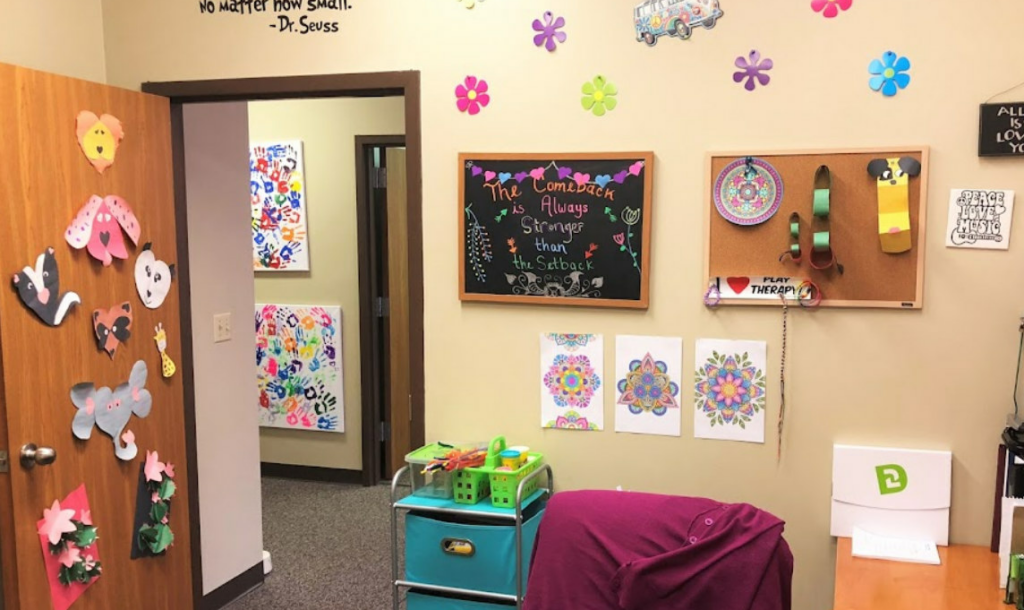
Child and Family Therapist Office
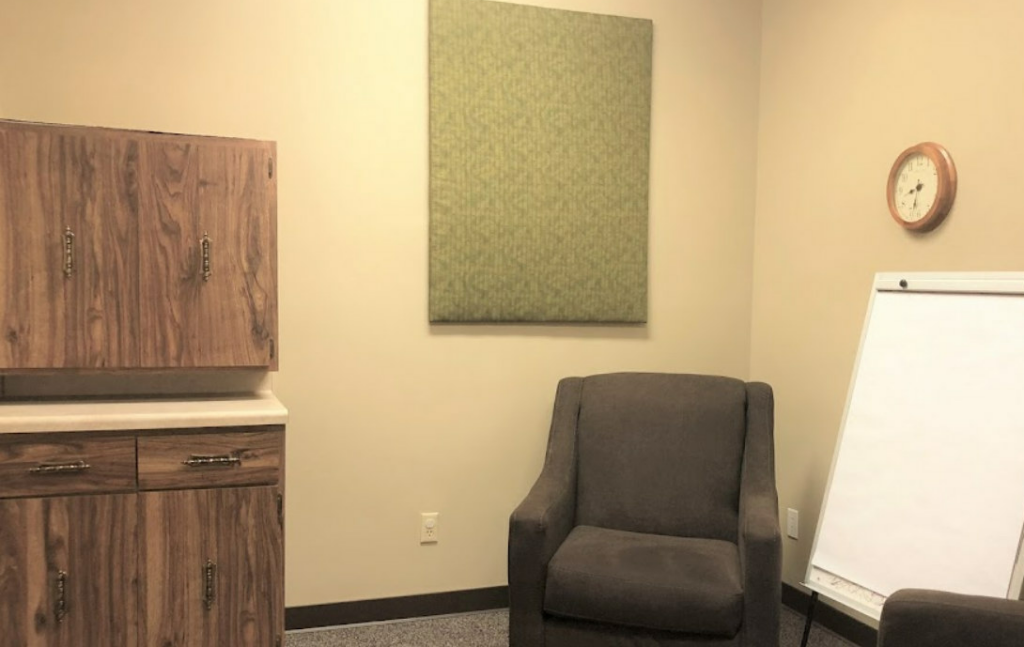
Child Interview Room
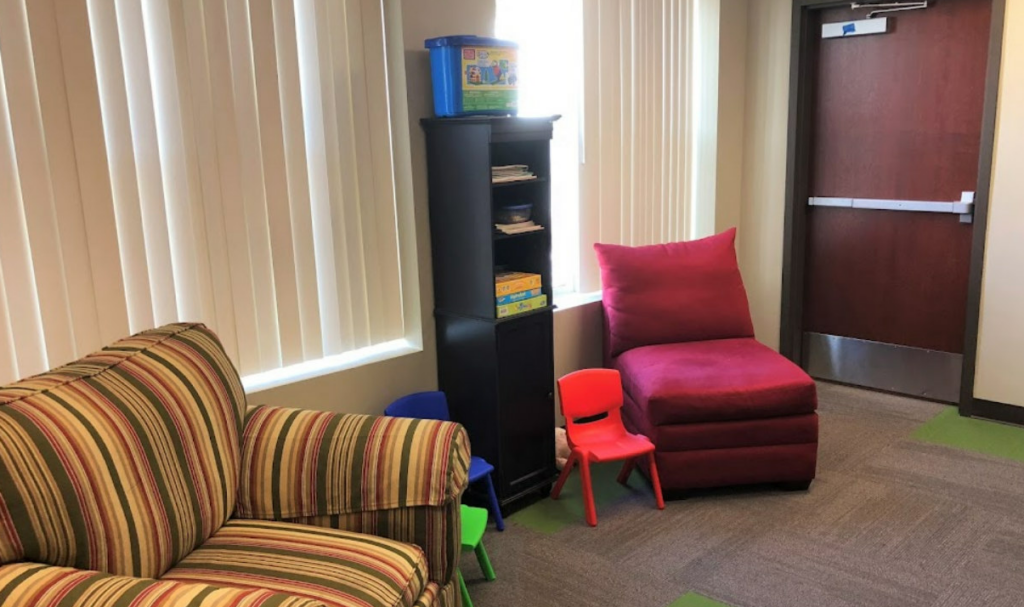
Child-Friendly Waiting Area
TEAMWORK
At present, the counties served by the CAC and similar agencies across the nation are faced with this reality: many of our children are being abused.
Each year, the CAC and its multidisciplinary team members investigate numerous cases of suspected physical and sexual child abuse while providing services to children and their families.
The CAC offers a coordinated, multidisciplinary intervention system involving agencies and the community.
- The Children’s Division
- The Prosecuting Attorney’s Office>
- Law Enforcement
- The Juvenile Office
- Medical Personnel
- Mental Health Professionals
- CAC Staff
- Community Volunteers
We are a part of a nationwide effort to reduce the trauma of abuse, so children are not re-victimized by the system designed to protect them.
In the past, victims seeking help faced multiple contacts with different community professionals, creating a maze of confusion for the child and family.
With the support of the community, the CAC enables the child to visit one location for safety, protection, and justice instead of going from agency to agency.
- Kimberly Kemerer – Executive Director
- Kelsey Christisen – Farmington Forensic Interviewer
- Haley Easley – Union Forensic Interviewer
- Autumn Colvis – Prevention Specialist
- Abby Manning – Festus Forensic Interviewer
- Bonita Hecktor- Union Family Advocate
- Amy Hall – Union Child & Family Therapist
- Stephanie Lane – Festus Child & Family Therapist
- Samantha Harris – Farmington Family Advocate
- Matt Lindemeyer – President – Missouri State Technical Assistance Team – Field Investigator
- Matthew Becker – Vice President –
Franklin County Prosecuting Attorney’s Office – Prosecuting Attorney - Karen Stetina – Secretary – Director Of The Child Protection Unit Jefferson County Juvenile Office
- Trisha Stefanski – Member – Jefferson County Prosecuting Attorney’s Office – Prosecuting Attorney
- Ms. Debra Thomas – Member – 42nd Circuit Juvenile Office – Deputy Juvenile Officer
- Lt. Gary Higginbotham – Member – Jefferson County Sheriff’s Office
- Ms. Dina Vitoux, LCSW – Member – Mental Health Counseling Concepts
- Captain Chuck Subke – Member – Franklin County Sheriff’s Office
- Dr. David Stansfield – Member – Physician Medical Services – Safe/Care Provider
- Ms. Cindy Vessell – Member – Senior Director of Community Services
- Melissa Gilliam – Member – St. Francois County Prosecuting Attorney’s Office – Prosecuting Attorney
- Det. Dustin Smith – Member – Farmington Police Department
- Ms. Mary Gorman- Non-Voting Member – Northern Region Children’s Division
LOCATIONS
442 FORENSIC INTERVIEWS IN 2021
889 MENTAL HEALTH SESSIONS IN 2021
FRANKLIN COUNTY PREVENTION PROGRAM REACHED 5,165 STUDENTS IN 2021
A Safe Place
A Safe Place
Viewing this website could place you in danger.
Computer use can be monitored and is impossible to completely clear searches.
Please ensure you are using a safe computer.
If you are in danger and do not have access to a safe computer, call our 24-hour crisis hotline at 636-232-2301 or call the National Domestic Violence Hotline at 1-800-799-SAFE.
If you are at a safe computer, read below for steps to stay safe.
Steps to Stay Safe
Use a safe computer at a library or community center. This is especially important when researching escape plans. Searching for bus tickets, shelter information, housing, or classified ads on a home computer can alert your abuser and increase your risk.
If you bookmark this or any other site about domestic violence, your abuser may see your computer activity. If you can, clear all web browser cache, cookies, and history. See instructions below for reducing risks.
Instructions for Internet Explorer
1. To delete temporary internet files, cookies (cryptic bookmarks that a Website can place on your computer to acknowledge your visit) and web addresses in your history:
2. On the menu at the top of the browser window, click on Tools>Internet Options…
3. In the dialog window that opens, click on the “General” tab.
4. In the section labeled “Temporary Internet Files”, if you wish to delete all files and cookies, click on the “Delete Files…” button. A confirmation dialog will open asking if you want to delete all files in your temporary internet folder. Click “OK.”
5. If you wish to selectively delete files and cookies, click on the “Settings…” button. A dialog window will open. Click on the “View Files…” button. A window will open with a list of all your temporary internet files and cookies. You can highlight the files you wish to delete and hit the delete key or click Edit>Delete.
6. To empty the History folder, click on the “Clear History” button and then the “OK” button.
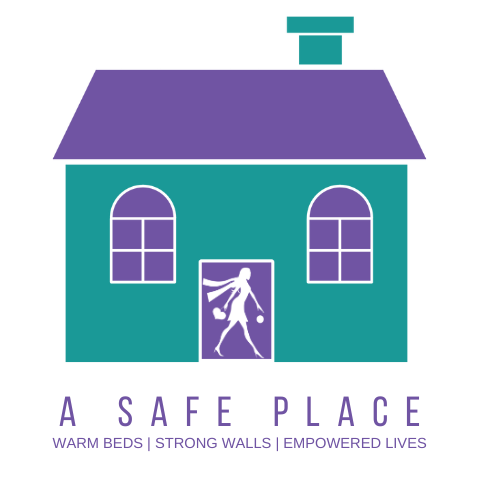
A Safe Place
Domestic Violence Shelter
VISION:
A Safe Place Will Assure Survivors And Their Children A Comprehensive Treatment Process In A Safe And Secure Environment In Jefferson County.
MISSION:
To Provide, With Dignity And Respect, A Comprehensive, Quality Program Including Education, Therapy/Counseling, Shelter Advocacy, Accessibility, Referral Network, Etc. To Any Battered Survivor And His/Her Children.
TESTIMONIAL
Now… we are happy. We don’t have much, but we have each other, tons of good times and a sense of security. Life is good.”
SHELTER
A Safe Place is a residential shelter and program providing services to meet immediate needs of domestic violence survivors and their children. Abuse may be physical, sexual, emotional, verbal, psychological, or the destruction of property or pets..
Children who grow up in violent homes frequently learn violence as an acceptable means of resolving conflict or exerting control. These children are more likely to become victims or abusers as adults. A Safe Place provides a comprehensive program for the survivor and family, teaching healthy conflict resolutions and lifestyles.
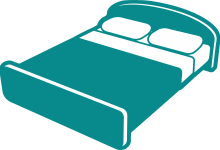
Living Quarters
The emergency shelter accommodates six families in a community living home until they can support themselves or family.

Daily Activities
Residents share in daily activities and learn skills such as cooking, parenting education, and other life skills.

Goal-Based
Residents agree to a goal-based program which focuses on safety, healing, and financial independence.
KEY BENEFITS
Access to Care
Pets Referral Program
Referral & Resourcing
24-Hour Staff
Therapy, Counseling, & Coaching
Perpetrator Referral
SERVICES
Shelter Care
Survivors learn to break the cycle of violence through individual counseling, support groups, education, comprehensive parenting, fitness, and wellness programs. Feelings of dependency are replaced with self-sufficiency. Self-esteem, assertiveness, communication, and decision-making skills are taught, and assistance with nutrition, budgeting, housing, job searching, and career planning is provided. Additional services include:
- 24-Hour Crisis Hotline
- Emergency Shelter Program
- Residential Shelter Program
- Individual and Group Therapy
- Life Skills Group
- Domestic Abuse Education Group
- Court Advocacy
- Recreational Activities
- Child Play Therapy
- Art Therapy
- Crime Victims Advocacy
A Safe Place empowers survivors and their children to rise above the pain of domestic abuse and begin a safe and healthy life.
Community Groups
DOMESTIC VIOLENCE SUPPORT GROUP5
SEXUAL ASSAULT/ABUSE SUPPORT GROUP
These support groups, free and on-going, empowers survivors to rise above the pain of domestic abuse and begin a safe and healthy life.Learn from others’ experiences and support each other in the process of healing, change, and transformation.
Resources
Speak With Our Staff
Receive counseling, advocacy, referrals, and other services
636-232-2301
Missouri Coalition Against Domestic Violence
State-wide domestic violence resources and network
www.mocadsv.org
National Coalition Against Domestic Violence
National domestic violence resources and network
www.ncadv.org
Secret Financial Escape Plan
Steps to quietly build a credit history
https://www.nasdaq.com/articles/secret-financial-escape-plan-domestic-violence-victims-2014-12-29
If you know a friend of loved one who is being abused, consider taking these steps:
Set up a time to talk. Try to make sure you have privacy and won’t be distracted or interrupted. Let her know you’re concerned about her safety.
Be supportive. Listen to her. It may be very hard for her to talk about the abuse. Tell her that she is not alone and that people want to help.
Offer specific help. You might say you are willing to just listen, to help her with child care, or to provide transportation, for example.
Keep in mind that you can’t “rescue” your friend. She has to be the one to decide it’s time to get help. Support her no matter what her decision.
Let your friend know that you will always be there no matter what.
More Information:
Know the different warning signs of abuse.
Learn more ways to help a friend or loved one who is being abused.
Call the National Domestic Violence Hotline at 800-799-7233 or 800-787-3224 (TDD).
STORIES
A Safe Place is the only domestic violence shelter in Jefferson County.
A Safe Place was founded in 1987 to serve survivors of domestic violence. In 1998, the shelter opened at a new, undisclosed location to provide increased care and protection to the residents.
Looking to the future…
A Safe Place has expanded services by building Mary’s House of Hope at A Safe Place, a transitional housing complex with four apartment units for women and children preparing for independent life.
2021 Impact
- Received 1,226 hotline calls
- Served 1,1916 clients
- Turned away 1,022
- Offered 6,194 nights of safety
- Educated 263 individuals about domestic violence
- Assisted with 109 orders of protection
- Provided 101.25 hours of court advocacy for survivors
- Provided 541 hours of professional therapy
- Provided 357 hours of crisis intervention services
In 2004, I was involved in a custody case due to domestic violence. I worked with A Safe Place to create a plan that would allow me to get out. During my stay at the shelter, I received more resources and support than I could have ever imagined. My healing process began, and I was finally gaining confidence and peace I had lost so long ago. My girls also had a safe place where they could talk about their experiences and find healing.
When I left the shelter, I couldn’t afford a new place to call home. I had to go back to a former residence known by my abuser. Shortly after I moved, he broke into my home and assaulted me and my best friend, threatening both of us with a knife. Thankfully, I escaped without injury, but my friend was hurt. The police came and I filled out another restraining order. Because I didn’t feel safe staying there with my children, I was forced to move in with my family. I did not want to burden them and I feared for their safety, but I had nowhere else to turn.
If I had access to transitional, safe housing after my stay at A Safe Place, I would not have been assaulted again or placed my family at risk. A Safe Place played a huge role in my journey to freedom from the abuse. I am where I am today because of the services they provided me at such a crucial time in my life. I have since moved on to a successful career, safe home life, happy family, and healthy marriage. If transitional housing had been available, I know the next step in my journey would have been less traumatic.
The continued safety net of A Safe Place would have given me the additional leverage needed to confidently take those steps back into society. Had transitional housing been available, it would have given me the opportunity to safely establish the financial stability and structure needed for a fresh start. Transitional housing allows survivors to prosper while still feeling safe. I hope that other women find the strength and courage to leave their abusers, and that, with your support, they have the resources and the time to safely gain full independence and stability.
Mary’s House of Hope
Mary’s House of Hope
Viewing this website could place you in danger.
Computer use can be monitored and is impossible to completely clear searches.
Please ensure you are using a safe computer.
If you are in danger and do not have access to a safe computer, call our 24-hour crisis hotline at 636-232-2301 or call the National Domestic Violence Hotline at 1-800-799-SAFE.
If you are at a safe computer, read below for steps to stay safe.
Steps to Stay Safe
Use a safe computer at a library or community center. This is especially important when researching escape plans. Searching for bus tickets, shelter information, housing, or classified ads on a home computer can alert your abuser and increase your risk.
If you bookmark this or any other site about domestic violence, your abuser may see your computer activity. If you can, clear all web browser cache, cookies, and history. See instructions below for reducing risks.
Instructions for Internet Explorer
1. To delete temporary internet files, cookies (cryptic bookmarks that a Website can place on your computer to acknowledge your visit) and web addresses in your history:
2. On the menu at the top of the browser window, click on Tools>Internet Options…
3. In the dialog window that opens, click on the “General” tab.
4. In the section labeled “Temporary Internet Files”, if you wish to delete all files and cookies, click on the “Delete Files…” button. A confirmation dialog will open asking if you want to delete all files in your temporary internet folder. Click “OK.”
5. If you wish to selectively delete files and cookies, click on the “Settings…” button. A dialog window will open. Click on the “View Files…” button. A window will open with a list of all your temporary internet files and cookies. You can highlight the files you wish to delete and hit the delete key or click Edit>Delete.
6. To empty the History folder, click on the “Clear History” button and then the “OK” button.
If you know a friend of loved one who is being abused, consider taking these steps:
Set up a time to talk. Try to make sure you have privacy and won’t be distracted or interrupted. Let her know you’re concerned about her safety.
Be supportive. Listen to her. It may be very hard for her to talk about the abuse. Tell her that she is not alone and that people want to help.
Offer specific help. You might say you are willing to just listen, to help her with child care, or to provide transportation, for example.
Keep in mind that you can’t “rescue” your friend. She has to be the one to decide it’s time to get help. Support her no matter what her decision.
Let your friend know that you will always be there no matter what.
More Information:
Know the different warning signs of abuse.
Learn more ways to help a friend or loved one who is being abused.
Call the National Domestic Violence Hotline at 800-799-7233 or 800-787-3224 (TDD).
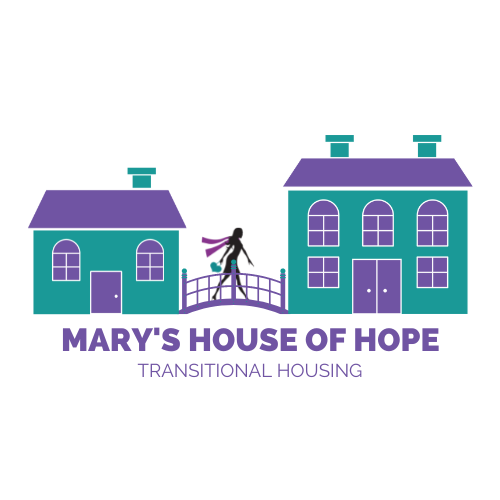
VIRTUAL TOUR
WHY WE EXIST
WITH YOUR DONATION, YOU CAN MAKE A DIFFERENCE FOR
THE WOMEN WHO DESERVE IT THE MOST, BUT HAVE THE LEAST
THE PROJECT
12 FAMILIES EMPOWERED TO TRANSITION TO INDEPENDENT LIVING
GOAL: To transition the women from the emergency shelter (A Safe Place) to independent living, free from violence and fear for one to two years at Mary’s House of Hope. $3.5 million is needed to complete the entire project.
MILESTONES:
- A groundbreaking ceremony was held on March 17, 2017
- Public water and sewer installed; site preparation is complete
- Funds raised utilizing NAP tax credits a year and a half early
- $1.5 million was raised to build and furnish the first home
- The first four families moved into apartments Fall of 2020
- The Circle of Hope campaign created to cover operational expenses
- Legacy of Hope Society Created – 2021
OUR IMPACT
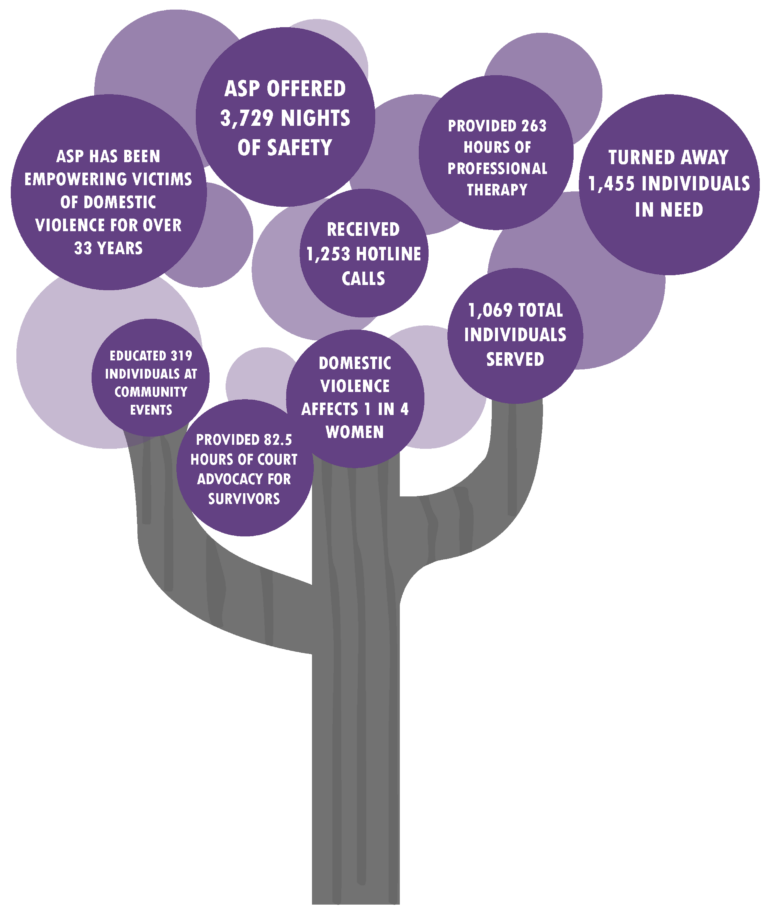
ABOUT THE PROJECT
For many of us, our home is the safest place we know, a personal sanctuary where we can retreat and relax. For survivors of domestic violence, though, their homes are not havens. Their homes are cocoons of fear. To escape the abuse, women and men, and their children, need a comprehensive program of education, therapy and counseling, court advocacy, and above all, a secure environment.
They need A Safe Place.
Our residential program is the only emergency shelter for domestic violence in Jefferson County. Serving the greater St. Louis area and surrounding counties, A Safe Place provides services to meet the immediate needs of domestic violence survivors including physical, sexual, emotional, verbal, psychological, or the destruction of property or pets.
While staying at A Safe Place, survivors learn to break the cycle of violence through individual counseling, support groups, education, and comprehensive parenting, fitness, and wellness programs. Over time and through work with a variety of providers,residents replace their feelings of dependency with self-sufficiency. They learn to build their self-esteem, and work on assertiveness, communication and decision-making skills. They receive assistance with nutrition, budgeting, housing options, job searches, and career planning, in addition to full primary care, dental care, and mental health services. Because every resident is unique, we offer individualized plans that coordinate all services, providing the optimal opportunity for each person to be restored to wholeness.
Adults aren’t the only victims of domestic violence. Children who grow up in abusive homes frequently learn violence as an acceptable means of resolving conflict and exerting control. These children are more likely to become victims or perpetrators as adults. A Safe Place offers assistance to these youngest survivors through counseling, recreational activities, child play therapy, and art therapy. A Safe Place also offers a Pet Protection Program to ensure domestic animal safety.
A Safe Place empowers residents and their children to rise above the pain of domestic abuse and begin a new, safer and healthier life, where they can transform from victim to survivor.
Why is the project called Mary’s House of Hope?
Mary Daniels was a woman from Hillsboro killed by her estranged husband in 2010. Mary’s family, friends, and supporters have raised over $100,000 for this project.
Who will manage the facility?
Compass Health Network will own and manage the facility. Mary’s House of Hope is being constructed on property adjacent to Compass Health Network’s A Safe Place.
How much is needed to complete the entire project?
$3.5 million
How many housing units will Mary’s House of Hope at A Safe Place Provide?
Each house consists of four units (one 1-bedroom unit, two 2-bedroom units, and one 3-bedroom unit). When all three houses are completed, there will be three 1-bedroom units, six 2-bedroom units, and three 3-bedroom units (total of 12 units). In addition, there will be three multipurpose rooms. A playground is adjacent to the housing facilities.
How long will a family reside in transitional housing?
A family can remain in a unit for up to two years. Residents will receive an individualized plan of action towards sustainable living, with staff oversight on measurable progress.
How will donors be recognized?
Donor recognition levels range from $1 to over $250,000. Donors will be acknowledged on COMTREA’s virtual donor wall. Additional donor recognition is dependent on amount of gift.
What is the project timeline?
The first housing complex is completed and we are continuing the campaign to raise funds for the remaining two units.
Is my donation tax deductible?
We are a tax exempt 501(C)3 organization and contributions are deductible to the extent of the law (please consult advisor).
What is the Circle of Hope?
Our Circle of Hope program supports sustainable funding of Mary’s House of Hope. These homes will continue to give hope far into the future. As each woman moves on to her own house, empowered and able to sustain herself and her family, the unit will be refreshed for another survivor looking to secure their independence.
Many effects of the 2020 pandemic are yet to be seen. The shelter in place orders given to protect society as a whole have only increased household tensions, especially those living with a violent partner or family member.
A Safe Place emergency shelter is now expecting a second surge; a surge of victims seeking shelter from abusers they have been locked down with during the past year.
The current lack of affordable housing offered in our area brings devastating consequences for those fleeing violent living conditions. Mary’s House of Hope will be on the forefront of the expected surge as we take next steps to build a second transitional housing unit. Families currently living in the first unit will continue to work towards their own individualized plan of action towards sustainable living.
Please consider supporting Phase 2 of Mary’s House of Hope to build four additional apartments for other families ready to transition out of A Safe Place emergency shelter.
You can be part of the foundation that builds a home for so many families seeking a safe and independent future.
CIRCLE OF HOPE
PROGRAM OVERVIEW
Your gift to the Circle of Hope program supports operational costs for Mary’s House of Hope at A Safe Place. These homes will continue to give hope far into the future. As each woman moves on to her own house, empowered and able to sustain herself and her family, the unit will be refreshed for other survivors looking to secure their independence.
FUND LIVING EXPENSES
MONTHLY & ONE-TIME DONATIONS
$50 monthly
$100 monthly
$250 monthly
$500 monthly
SPONSOR A FAMILY
MONTHLY COMMITMENT
$700 monthly (1-bedroom unit)
$800 monthly (2-bedroom unit)
$1,000 monthly (3-bedroom unit)
$1,250 monthly (3-bedroom unit and living expenses)
$2,083 monthly (Two 2-bedroom units and living expenses)
BUILD HOPE FOR SURVIVORS
Mary’s House of Hope is supported by financial gifts, grants, volunteer time and services, and donations of supplies.
Donations are tax-deductible to the extent of the law.
LEGACY OF HOPE
HOW TO LEAVE AN IMPACT
Giving through your will is easy, and no amount is too small. There are many options that can be tailored to your needs.
- Leave a monetary amount in your will or trust
- Provide a gift of real estate
- Transfer stocks and business holdings
- Donate retirement assets or IRA rollover
- Gift life insurance funds
- Designate annual interest earnings
- Set up an endowment
Charitable Wishes
Your financial advisor can help legacy gifts exist side-by-side with other beneficiaries and family priorities. We’ll help you find the best fit for your gift so it creates a permanent impact.
Financial Planning
Each type of charitable gift has varying tax laws and flexibility. Every situation is different; please discuss with your financial advisor or attorney the best plan for you. COMTREA does not provide financial or legal advice.
Click here to download a fillable pdf form. Once completed, mail or email the form to:
Compass/MHOH
ATTN: Legacy of Hope
227 East Main Street
Festus, MO 63028

